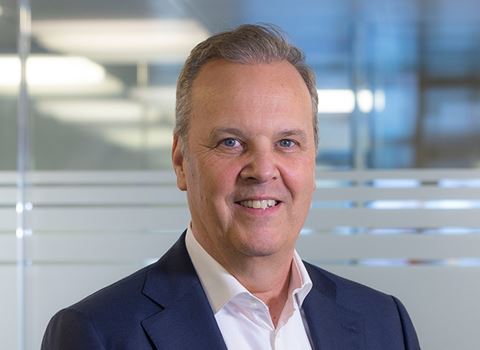In this Q&A published on the Wealthnet, Cees Vermaas, CEO at The International Stock Exchange (TISE), shares his thoughts on the rise in private markets, as well as some personal anecdotes.
Cees Vermaas is chief executive of The International Stock Exchange (TISE), a position he has held since November 2020. With a focus on strategy, business development and infrastructure, he is responsible for all aspects of leadership and management of the company.
He aims to work with and create enhanced value for TISE’s stakeholders, including its staff, members, issuers and shareholders. Mr Vermaas has 25 years’ experience within international financial market infrastructure. He has held senior executive positions within several international exchanges, including chief executive of CME Europe Ltd, chief executive of Euronext Amsterdam and head of European cash markets for NYSE Euronext.
Prior to that, he spent a decade working in IT and programme management roles within Netherlands based companies Philips and Delta Lloyd Group.
Additionally, Mr Vermaas holds a degree in Business Administration and Industrial Engineering from The Hague University of Applied Sciences in the Netherlands.
Why do you specialise in this area?
TISE has a 25-year history as a public market for listed products and we are best known as one of the major bond markets in Europe. Today there are companies from more than 35 countries, but predominantly the UK, listing more than 4,000 securities worth over £650 billion on our Exchange. However, it’s impossible to look at the UK financial landscape right now and not think about private markets; they are a compelling alternative to the public markets, which are clearly unable to look after the ever-increasing number of companies who are choosing to stay private for longer. TISE Private Markets provides opportunities for innovation, growth, and investment for companies which are not available in the public markets – and importantly, these companies can generate more value whilst remaining private.
"The process around accessing capital is slow, convoluted, and expensive, but TISE Private Markets have a solution to this."
Private markets need a solution for liquidity. The process around accessing capital is slow, convoluted, and expensive, but TISE Private Markets have a solution to this. Our in-house trading platform enables unlisted companies to buy and sell their own shares without intermediaries, offering privately owned companies a transparent, efficient trading platform, reducing management workload, and improving price discovery. A key example of this is Blue Diamond, the UK’s largest garden centre group, which holds monthly share auctions to enhance liquidity and shareholder engagement through our offering. The success of Blue Diamond has spotlighted the potential our platform has to facilitate private company money recycling into new investments.
What are the key trends shaping private markets at the moment?
There are three main drivers to be aware of:
De-equitisation trend: It will come as no surprise to those watching the London listing market that there is an increasing trend of public companies being taken private. The majority of UK M&A in 2023 were take-privates. Low valuations and high costs are driving firms away from public markets, and conversely, these are also the same reasons why private companies wish to stay private for longer.
The number of private companies is growing: Over the last 10 years, the UK economy has added 4,714 private companies with 100 or more employees, while the number of listed companies has reduced by 275. The UK now has 19,148 privately owned companies with over 100 employees. This is 16 times the size of the listed market; indicating a true shift in where economic activity is now concentrated.
Primary markets are inadequate: Despite the growth being seen in the market, all but the largest private companies are still being failed through outdated processes and challenges in accessing capital. Private companies are a vital part of the UK financial ecosystem, but they are unable to access liquidity events without wandering into the ever-volatile world of listing on main markets.
What excites you most about private markets?
Private markets are the backbone of the UK economy. What isn’t exciting about that? The potential for innovation and growth is very high; private markets offer a more flexible environment for companies to develop and implement bold, transformative ideas without the immediate pressures of the public markets and all the processes that come with being listed.
"TISE Private Markets... helps private companies alleviate themselves of the pressures of the public markets while also improving the processes for share trading and share registry management in the private markets."
TISE Private Markets is an example of the type of innovation which meets a need in the market. It helps private companies alleviate themselves of the pressures of the public markets while also improving the processes for share trading and share registry management in the private markets. I think we will see more of these types of innovations which can stimulate further growth in the market.
When’s the last time you failed spectacularly at something?
I love to cook and eat healthily, because I think it gives you the right energy for the day and typically in the mornings, but occasionally I sometimes have teething problems…. I failed spectacularly the last time I made a risotto. It requires a lot of patience and just the right amount of ingredients and I really struggled to get it right. Until I bought a Thermomix! It just goes to show how sometimes technology can be very helpful in all sorts of what through our lives.
Do you have pets? What are they like?
I have a dog called Lola. She’s a four-year-old Pomeranian weighing about 2kg and everybody, including my children, find the pairing very funny because they say that she does not suit me! But I raised her during COVID, so we have come to have a very strong connection and now she goes everywhere with me. If I move into another room in the house, she follows and is always ready and raring to go for a walk or receive some attention. She’s very sweet.
What was your student job?
I grew up in Noordwijk, which is a town on the western coast of the Netherlands, and I used to work in a pancake house. I would work there for the whole summer so that I had enough money to drive my car during the rest of the year; it was a Volkswagen Beetle which I drove for about six years. I was working front of house serving customers and it taught me a lot about work ethic – every shift was tough, you could lose so much weight with this intense work, and you also learn to deal with people. Obviously, these are very important lessons to learn at a young age and very useful for my future.
This article was published in the Wealthnet, July 2024
A PDF version of this article can be found here.

Cees Vermaas
CEO

